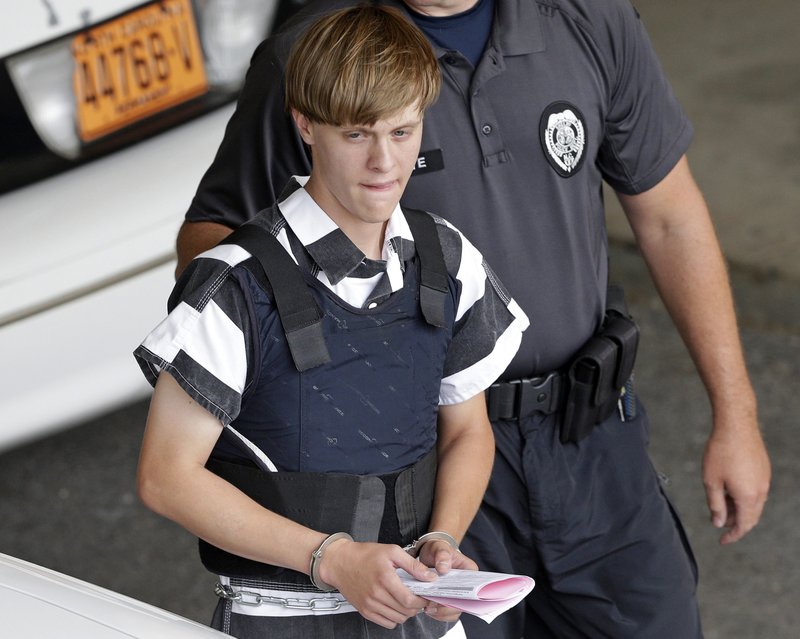CHARLESTON, S.C. — The same jury that last month unanimously found Dylann Roof guilty in the slayings of nine black parishioners at a South Carolina church is returning to court to begin contemplating his punishment.
With the 22-year-old representing himself, the process is sure to be unconventional. But even if Roof is sentenced to death, it's highly unlikely he'd be executed anytime soon.
While prosecutors plan to call up to 38 people related to the nine people killed and three who survived the June 2015 slaughter during Bible study at Emanuel AME Church in Charleston, Roof said last week he plans on calling no witnesses and presenting no evidence.
Roof was found guilty last month on 33 federal charges, including hate crimes and obstruction of the practice of religion. A jury took less than three hours to return its verdict, and a judge dismissed the jury for a break over the holidays.
Typically in what's known as the sentencing phase, defense attorneys call relatives and other witnesses to testify about their client's unsteady state of mind before and during the crimes. Given that background, the defense hopes, a jury might be more likely to spare the defendant's life and opt against the death penalty.
But Roof, who is acting as his own attorney, has said he plans to do no such thing.
In his journal, which was read in court during his trial, Roof said he doesn't believe in psychology, which he called "a Jewish invention" that "does nothing but invent diseases and tell people they have problems when they don't."
Roof also seems to be determined to try to keep evidence embarrassing to him or his family out. Not only did he take over his own defense, but he asked the judge at a hearing Wednesday if he could file a motion limiting what prosecutors can introduce.
Roof also was adamant that a transcript of a hearing where he was found mentally competent not be released to the public.
"I know this is not a legal argument, but the unsealing of the competency hearing defeats the purpose of me representing myself," Roof said at last week's hearing.
Neither Roof, nor U.S. District Judge Richard Gergel nor prosecutors have given specifics on the evidence Roof is objecting to.
Roof also faces nine murder charges in state court, where prosecutors have also said they will seek the death penalty in a trial likely to begin sometime next year.
Whether he's sentenced to death or not, it's unlikely Roof would be executed anytime soon, in either jurisdiction. The federal government hasn't executed anyone since 2003, and there are years of appeals between a death sentence being levied and carried out.
South Carolina's death chamber hasn't been used since 2011, due at least in part to a lack of availability for the drugs the state uses for lethal injection.
Read Tuesday's Arkansas Democrat-Gazette for full details.
